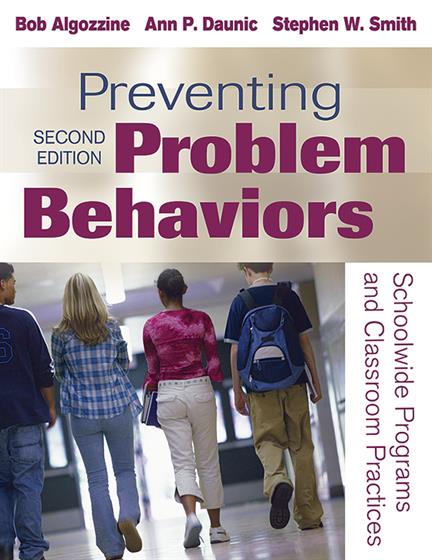Acknowledgments
About the Authors
1. Prevention Science and Practice
What We Know about Prevention Practice
What We Know about Response to Intervention
What We Know about Behavior and Academics
Changing the Lives of Students with Problems
An Illustration from Practice
2. Preschool Behavior Support
Importance of Teaching Social Skills in Preschool
Effective Practices for Teaching Social Skills to Young Children
Teaching Young Children How to Behave in Social Settings
An Illustration from Practice
3. Schoolwide Positive Behavior Support
Definition and Importance of SWPBS
Characteristics and Effective Practices of SWPBS
Effectiveness of SWPBS
Perspective on School-Wide Positive Behavior Support
An Illustration from Practice
4. Cognitive-Behavioral Interventions in School Settings
Cognitive-Behavioral Interventions
Theoretical Underpinnings of CBI
Current Research on CBI
School-Based CBIs
A CBI Example
Summary
An Illustration from Practice
5. Social Skills Instruction and Generalization Strategies
Social Skills, Social Competence, and Curricula
Generalization of Social Skills and Building Performance Competence
Why Social Skills Programs Sometimes Fail
Gaining Community Support for Social Skills Training
Importance of Improving and Generalizing Social Skills
6. Conflict Resolution, Peer Mediation, and Bullying Prevention
Some Program Definitions
A Developmental Framework
Characteristics of Effective CRE Programs
How to Sustain CRE and Bullying Prevention Programs
Concluding Thoughts
An Illustration from Practice
7. Classroom Interventions and Individual Behavior Plans
What Educators Should Know About the RTI Model
RTI as a Schoolwide and Classroom Management Approach
Effective Classroom Management Approaches
Tier 2 Behavior Plans for Students
Behavior Planning for Tier 2 Students
Summary of Tier 2 Behavior Planning
Individualized Behavior Plan (BIP)
Conclusion
8. Effective Home-School Partnerships
The Importance of Home-School Partnerships
Principles and Key Features of Home-School Partnerships
Characteristics of Effective Home-School Partnerships
Home-School Partnerships and Challenging Behavior
Illustration from Practice
9. Community and Interagency Partnerships
Poverty, Immigrant Status and Risk
Interagency Approaches to Preventing Problem Behavior
Core Principles and Governance Structure
Linkages to Learning in Action
Preventing Problem Behaviors with Community Partnerships
10. Culturally Responsive Teaching
Culture and Today's Classrooms
Culturally Responsive Teaching
Teaching Appropriate Behavior
Teaching Behavior to CLD Learners
Conclusion
Illustrations from Practice
11. Monitoring Student Progress and Evaluating Prevention Practices
Evaluating Outcomes of Prevention Efforts
Designing Program Evaluations
Measurement Issues
Common Hazards in Program Evaluation
Disseminating Evaluation Information
Measuring Success of Preventing Programs
12. Building and Sustaining Effective Prevention Practices
Building Effective Prevention Practices
Putting It All Together
Postscript
References
Index




